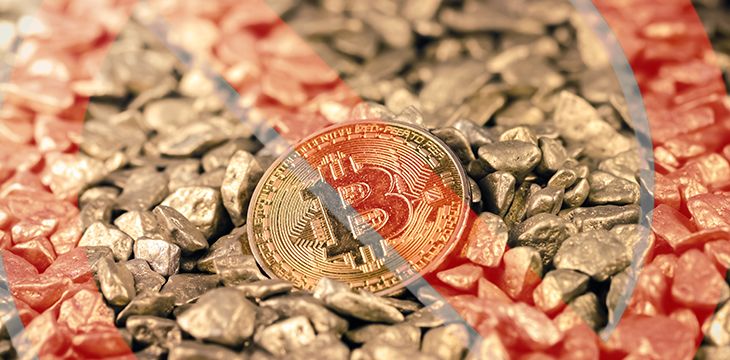|
Getting your Trinity Audio player ready...
|
Whenever you hear someone mention “digital gold” in a positive way concerning Bitcoin, run. Run far and take your real gold with you, because they are after your wealth.
Before 2017/2018, BTC’s official story was “new money for the world” or “money of the internet.” In the past 2 years, BTC shifted to a “digital gold” and “store of value” narrative.
A sudden change of narration is always suspicious, indicating an intent change.
Why has there been a shift to a new narrative?
In the digital currency bull market of late 2017 and early 2018, BTC’s transactional costs reached astronomical heights. Furthermore, the network slowed down and it took literally hours and in some cases days to actually transact BTC. People were trapped in BTC and realized it was even worse than the old fiat model.
Not only that, BTC proponents needed to lure in more buyers in order to support the high USD price of BTC. New buyers need a new narrative, because if the old narrative would have worked, they would already be in the game.
At the same time, new coins entered the digital currency market and presented themselves as an alternative to the BTC. People diversified their digital currency investments. BTC had trouble keeping up the pace and price in fiat terms.
BTC could not deliver on the promise of being new money for the world for technical and economic reasons. A new story had to be propagated. The lie of BTC being a “store of value” and “digital gold“ was born.
How would this new narrative attract new buyers to BTC?
Most people in this world are not investors and speculators, but keep their wealth in fiat cash or real estate. They were not lured into BTC by the promise of new money for the world. They simply do not care for cryptography, technical babbling or anything that appears complicated. Fiat cash seems to work for them and there was no appealing reason to actually exchange fiat to BTC at all.
To get this kind of people into BTC, you have to distance yourself from anything technical and trigger their preference for safety instead.
BTC meme-like deception specialist: “We Bitcoin. We store of value. We digital gold.”
Average person: “A store of value? Digital gold? Well, this sounds safe! I want my value to be stored. I want easy accessible gold in a digital way. Get me in!”
And so they got them in.
The “store of value” lie exposed
I would not say a word against BTC if it really was a store of value. But it is not.
In order for anything to be a store of value, it has to have a use case first. Gold has been used for jewelry and mythological reasons since thousands of years. It therefore became a store of value, because the ability to actually use it for something later on was always stored in it.
Gold could not become a store of value first and then be used for something. This would not make any sense. You do not buy something and check later for the utility of it. No, you check for the use of something first and then buy it exactly for that reason. The utility of a thing leads to the stored value in that thing.
Now here comes the problem. BTC has no use case. You can gamble on a digital currency exchange with it, but this use case of gambling is not inherent in BTC itself, it is the use case of the digital currency exchange. That is why digital currency exchanges make profits but average BTC “investors” do not. Wealth is created by goods and services, and the digital currency exchanges offer exactly a service. However, BTC itself does not. Is BTC at least a good then? No, because goods are usable for something, which BTC is—again—not.
Due to technical and economic reasons, BTC cannot serve as a public ledger and generate a real use case that could lead to a stored value in BTC. You would need a scalable blockchain for that, which is aggressively rejected by BTC proponents. They do not want to scale BTC, which can be translated as: They do not want BTC to have a use case. No use case, no store of value.
This is exactly why the Metanet was built on Bitcoin SV (BSV). The Metanet gives utility to Bitcoin SV. With its growing utility, Bitcoin SV indeed stores value by the ability to make use of it in the Metanet.
Bitcoin SV does not aim to be a store of value at all, but it will automatically be sooner or later by being usable.
The “digital gold” lie exposed
Real gold is—in larger quantities than your wedding ring—a burden to hold: You need a safe place to store it; you need diversified locations; you need to keep your mouth shut about it, nobody is trustworthy. Would it not be paradise to have “digital gold” that is easy to store and easy to transact?
Guess what, BTC. The vast majority of gold exchanged on this planet is already digital: gold securities, gold related stocks, and gold derivatives. We already have digital gold!
Last time I checked, gold did not need an overly complicated, regulation unfriendly and insecure Lightning Network node operation system to be exchanged.
However, Bitcoin is for many reasons not similar to gold anyways:
- Gold has a market driven inflationary supply, Bitcoin has not.
- Gold has physical attributes, Bitcoin does not.
- Gold has mythological, religious and anthropological meanings, Bitcoin does not.
- Gold has a use case. Bitcoin can be usable (Bitcoin SV) or cannot be usable (BTC).
- Gold is environment unfriendly to mine, Bitcoin is not.
- Gold is tough to mine, Bitcoin is not (it’s costly to mine, but not tough).
The list goes on and on. BTC is not playing the gold card in their narrative to actually compare Bitcoin to gold, but to lure in risk averse people into buying their BTC bags. Ask any BTC proponent about the factual similarities between Bitcoin and gold, you hear nothing but babble.
Also take into consideration that the narrative of gold has not changed in the past thousands of years. Sure, the mythological and religious reasons for gold may have faded a little, however gold is still considered the same thing as back in ancient times. There was no need for a shift of narration in gold ever.
In the current coronavirus-driven stock market crash, real gold—so far—did not significantly crash together with stocks. However, BTC went from roughly US$10,000 to, at this moment, around $5,000 USD, which is severe. BTC does not store your value, it cannot due to a lack of utility. Gold can though.
Bitcoin was never meant to secure you in a stock market crash anyways. Read the whitepaper and show me the part about stock market crash resistance of Bitcoin.
Bitcoin SV (BSV) does not even want to be considered a form of digital gold. With Bitcoin SV, we want a public ledger and the ability to write onto it. That is what the actual Bitcoin “coins” are for. Your way to participate on the global ledger, nothing more and nothing less.
Conclusion: pay attention to utility, not narratives
BTC lies to the crypto sphere. Period. BTC proponents very well know the facts mentioned above, but they have no choice other than to lie because of the lack of utility in BTC.
If you want gold, buy gold—real gold or “digital gold” like gold related stocks, gold securities or gold derivatives.
If you want a store of value, look out for utility of the thing you want to be a store of value. Without utility, it cannot store any value, because it has none in the first place.
You hold any BTC right now? Stop everything you do and research Bitcoin SV’s Metanet. Also check out plenty of available Bitcoin SV driven apps like Peergame, Twetch, WeatherSV and more to actually understand how Bitcoin can be used aside from just decaying in shady digital currency exchange wallets.
Recommended for you
The views expressed in this article are those of the author and do not necessarily reflect the position of CoinGeek.

 03-05-2026
03-05-2026 




